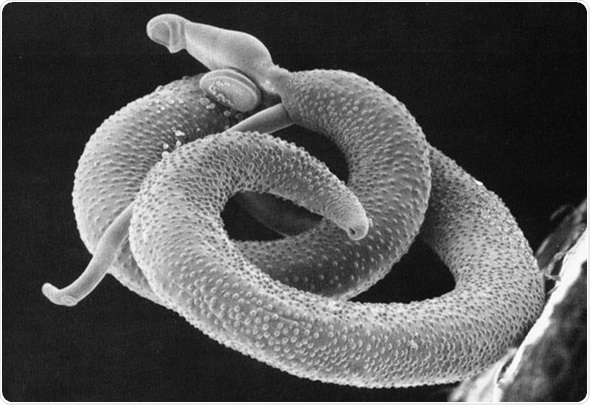Site Under Development, Content Population and SEO, Soft Launch 1st January 2020
Helminths are parasitic worms that feed on a living host to gain nourishment and protection, while causing poor nutrient absorption, weakness and disease in the host. These worms and larvae live in the small bowel and are referred to as intestinal parasites.
The following groups of worms are classed as helminths:

Helminths all share a similar morphology and are multicellular organisms that are visible to the naked eye. The worms are usually caught through treading on contaminated soil in warm, humid countries that have poor sanitation and hygiene.
If an infected person or animal has defecated on soil, helminth eggs present in their feces contaminate the soil. These eggs mature and hatch to produce larvae that grow into adult worms of up to 13 mm in length. These adult worms can penetrate human skin, which can happen if a person walks on contaminated soil. The worms then enter the bloodstream and migrate towards the lungs and also the throat where they are swallowed and transported to the gut.
Some of the features of the different groups of the helminths include:
Some of the diseases caused by helminths are described below.